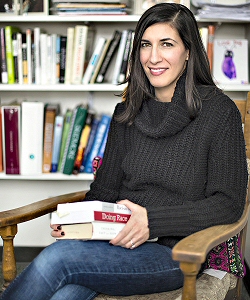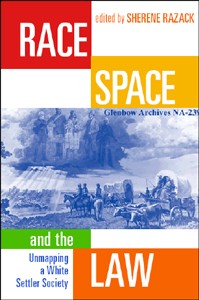Multiracial Faculty Members’ Experiences in the Academy
University of California, Los Angeles
Graduate School of Education and Information Studies
2017-01-31
Jessica C. Harris, PhD, Assistant Professor
Department of Higher Education & Organizational Change
University of California, Los Angeles
310-794-4982

Jessica Harris, PhD, from the Graduate School of Education and Information Studies at the University of California, Los Angeles (UCLA) is conducting a research study to explore multiracial tenured/tenure track faculty members’ experiences within the academy.
Why is this study being done?
This research will qualitatively explore the academic experiences of mixed race faculty working in U.S. institutions of higher education. While the experiences of monoracial faculty of color are documented in extant literature, there exist no studies, to my knowledge, of the experiences of mixed race faculty in the academy. The study will focus on participants’ experiences with tenure and advancement, teaching, research, service, and other important issues that must be explored in order to better inform inclusive practices that help to recruit and retain mixed race faculty and increase diversity within and across institutions.
What will happen if I take part in this research study?
If you volunteer to participate in this study, the researcher will ask you to do the following:
- Fill out an online demographics questionnaire.
- Participate in an approximately 60-minute individual interview conducted by the lead researcher and/or a graduate student researcher that the lead researcher supervises.
- Individual interviews will take place via Skype, telephone, or the communication software preferred by the participant. The researcher will conduct the interview in a private room.
- Questions within the interview may relate to participants’ experiences with the tenure and advancement process, teaching, pedagogical approach, and research.
How long will I be in the research study?
The demographic form will take about 15 minutes to complete. The individual interview will last approximately 60 minutes. The total time you will dedicate to this research is about 75 minutes. Given the time that lapses between filling out the demographic questionnaire and setting up an interview for the research, you may be an enrolled participant in this research anywhere from a few days to several months.
Are there any potential risks or discomforts that I can expect from this study? Are there any potential benefits if I participate?
Your participation should cause no more discomfort than you would experience in your everyday life. Participation may prove cathartic for participants. The information obtained from the study will help educators and campus leaders gain a better understanding of multiracial peoples’ experiences on the college campus. This will guide inclusive practices on campus. Your identifiable information will not be shared unless (a) it is required by law or university policy, or (b) you give written permission.
Will information about me and my participation be kept confidential?
Any information that is obtained in connection with this study and that can identify you will remain confidential. It will be disclosed only with your permission or as required by law. Confidentiality will be maintained by means of storing information with identifiers in a locked file cabinet in the lead researcher’s office- transcripts, audio files, and demographics forms will be stored under a numerical pseudonym. Your name will only be linked by a numerical code key that will be kept in a separate file cabinet and will only be accessible to two individuals, the lead researcher and the graduate research assistant. Finally, when information is reported out (via publications and conference presentations) all participants and institutions will be given pseudonyms. Other information will be reported back in general, broad categories, e.g. southern institution rather than an institution in Atlanta. All information will be kept in a secure and locked location for use in future research and destroyed within 10 years of the first interview.
What are my rights if I take part in this study?
- You can choose whether or not you want to be in this study, and you may withdraw your consent and discontinue participation at any time.
- You may refuse to answer any questions that you do not want to answer and still remain in the study.
Who can I contact if I have questions about this study?
- The research team: If you have any questions, comments or concerns about the research, you can talk to the one of the researchers. Please contact: Jessica C. Harris at jharris@gseis.ucla.edu or 310-794-4982.
- UCLA Office of the Human Research Protection Program (OHRPP):
If you have questions about your rights while taking part in this study, or you have concerns or suggestions and you want to talk to someone other than the researchers about the study, please call the OHRPP at (310) 825-7122 or write to:
UCLA Office of the Human Research Protection Program
11000 Kinross Avenue
Suite 211, Box 951694
Los Angeles, California 90095-1694








